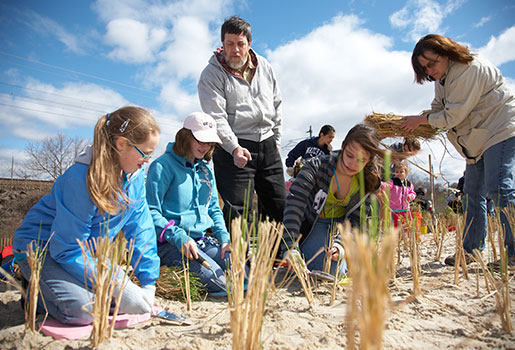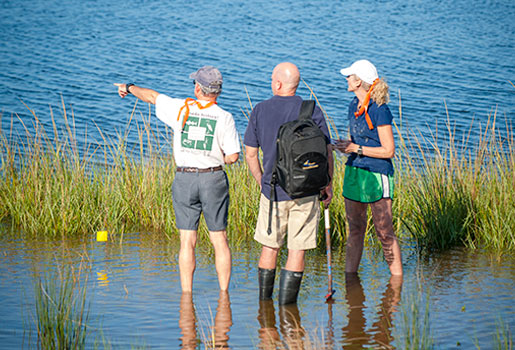Northeast/Mid-Atlantic Project Resources:
You will likely need permits for work on the shoreline or in and near the water. Depending on the project type and location, you may need local, state, and/or federal permits.
Even if you are doing something that helps improve habitat, you will likely need some type of permit, or at least formal permission from a regulatory authority, before you do any restoration activity.
Watch Restore America’s Estuaries webinar recording on Overcoming Permitting Barriers to Unlock Coastal Resilience.

Permits are required to protect water quality, shorelines, fish, and wildlife. Even projects that aim to improve water quality, the shoreline, or habitat may have unintended negative consequences.
Applying for a permit allows for the appropriate agency to review the scope of the project. The review will help to ensure impacts will be positive and limit the harm to the surrounding ecosystem during construction. The review may also improve your project, making it more effective. If you do a project without a permit, there could be significant fines.

Many local, state, and federal government agencies have worked to streamline the permit process for projects that improve the shoreline. Still, the permit process may be complex, expensive, and time-consuming.
This will help you find out what permits you may need. You will likely want to contact the environmental services, planning, or zoning division.

To find your local, state, or tribal governments, type the following into a search engine: your state/county and then the type of agency you are wanting to connect with (e.g., local government, tribal representative, state government). For example, search for “Delaware beach restoration permitting” or “New Jersey environmental protection.” Also try using terms that relate to your concern or solution. For example, “Maryland coastal flooding help.” Try different terms, or combinations of terms, such as “grants, restoration, invasive species, marsh, natural resources, volunteers, funding, etc.” It may take a few tries to find the site and information you are looking for.
To find a specific local county office, type the following into a search engine: your local county or city and then the department you are wanting to connect with (e.g. environmental, planning, natural resources). For example, search for “Providence County coastal management” or “New Haven, CT natural resources.”
Local: Local permits may be required for work that affects the shoreline and/or water quality. A construction permit may be required if you build any structures. There may be other local permits that apply to your project.
State: Laws and regulations vary greatly from state to state. Your state may require permits for actions that could affect wetlands or other aquatic habitats, water quality, native plants, fish and wildlife, shorelines, and more.
Federal: The U.S. Army Corps of Engineers requires permits for any work affecting the waters of the United States. The U.S. Environmental Protection Agency regulates water-related actions under the Clean Water Act. Permits are required for actions that may affect endangered or threatened species. There may be other federal permits that apply to your project.
We need your help to improve the Toolkit by completing our easy, 3-minute survey. Your insight is valuable to us.